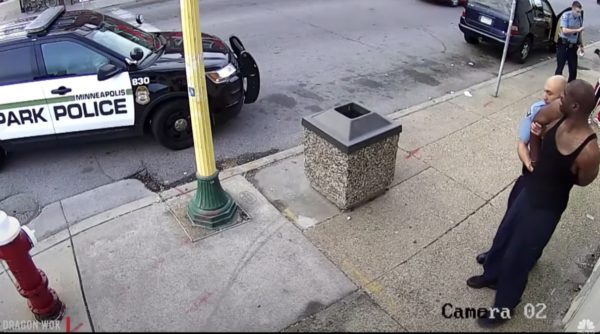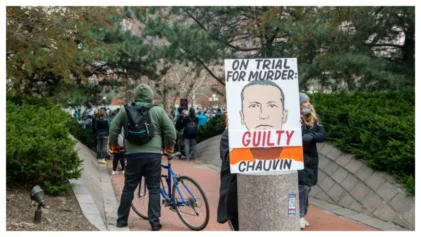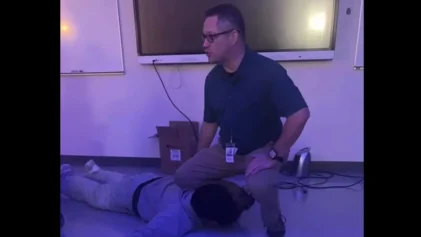A printout of George Floyd’s toxicology report was found posted to a Black History Month display at Duke University.
The flyer, which insinuated that Floyd died because of drug use, was found just days before Derek Chauvin’s trial is set to begin on Monday.
Floyd’s death sparked worldwide protests last May after Chauvin, a former Minneapolis police officer, knelt on his neck for nearly nine minutes.
The flyer was posted to a Black History Month display honoring victims of police brutality on Saturday. The toxicology report, posted alongside an image of Floyd, included handwritten marks that said, “Mix of drugs presents in difficulty breathing! Overdose? Good Man? Use of fake currency is a felony!”
The Hennepin County Medical Examiner said Floyd’s cause of death was “cardiopulmonary arrest complicating law enforcement subdual restraint, and neck compression.”
A private autopsy ordered by Floyd’s family echoed the medical examiner’s findings and concluded that the cause of death was “homicide caused by asphyxia due to neck and back compression that led to a lack of blood flow to the brain.”

A first-year student at Duke said he first spotted the flyer last Saturday, March 20 on the third floor of Brown dorm.
The student, Matt Mohn, told The Duke Chronicle he “did not believe what [he] was seeing.”
After he alerted his resident advisor, the printout was removed within 30 minutes.
John Blackshear, dean of students and associate vice president for student affairs, met with students to discuss the incident on Saturday afternoon, and said it was clear the flyer was intended to “distress the community.”
Blackshear said the incident is under investigation and that evidence was turned over to the Office of Student Conduct and Community Standards.
Duke notified the entire student body of the incident by email and encouraged anyone with information to come forward. The university called the flyer a “possible” violation of policies banning discrimination and harassment. If a student is found to be responsible for the flyer, disciplinary action will be taken against them.
“This communication follows the recommendation of the Summer 2020 Hate and Bias Working Group to provide more transparency to the student community in cases of anonymous acts of bias,” Blackshear and Jeanna McCullers, the senior associate dean, said in the letter to students.
Last year, a summer working group made up of students, faculty and staff, established a hate and bias policy to make the campus more inclusive.
The trial for Chauvin, who faces charges of second-degree murder, third-degree murder and second-degree manslaughter, is set to begin Monday. The fifteenth and final juror was seated last week. On the fourth day of the two-week jury selection process, Minneapolis announced a $27 million settlement to Floyd’s family.


